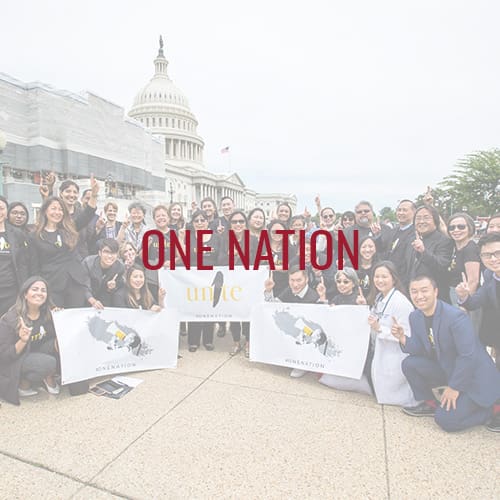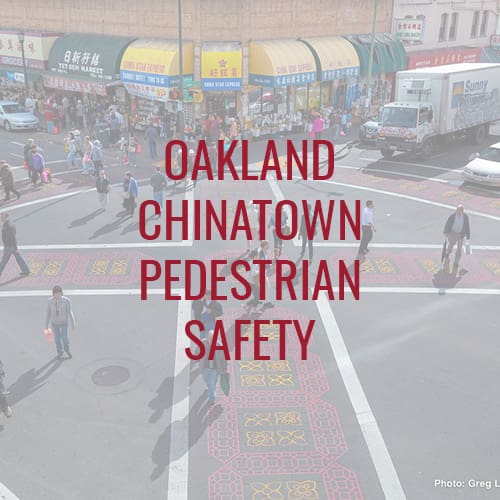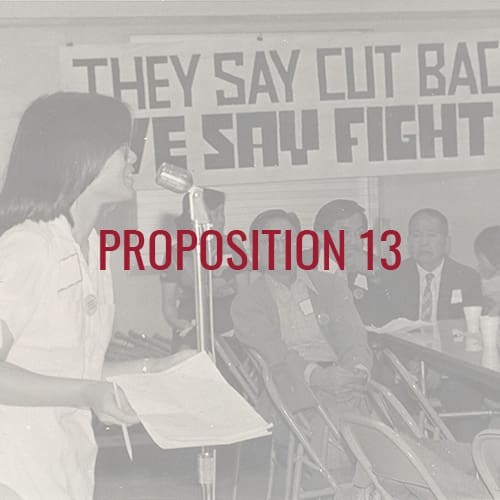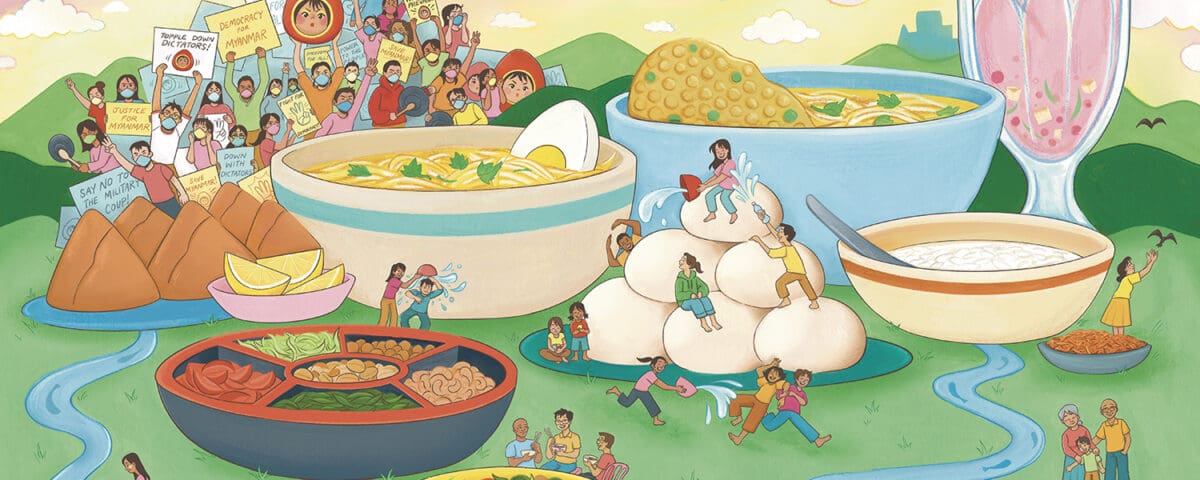
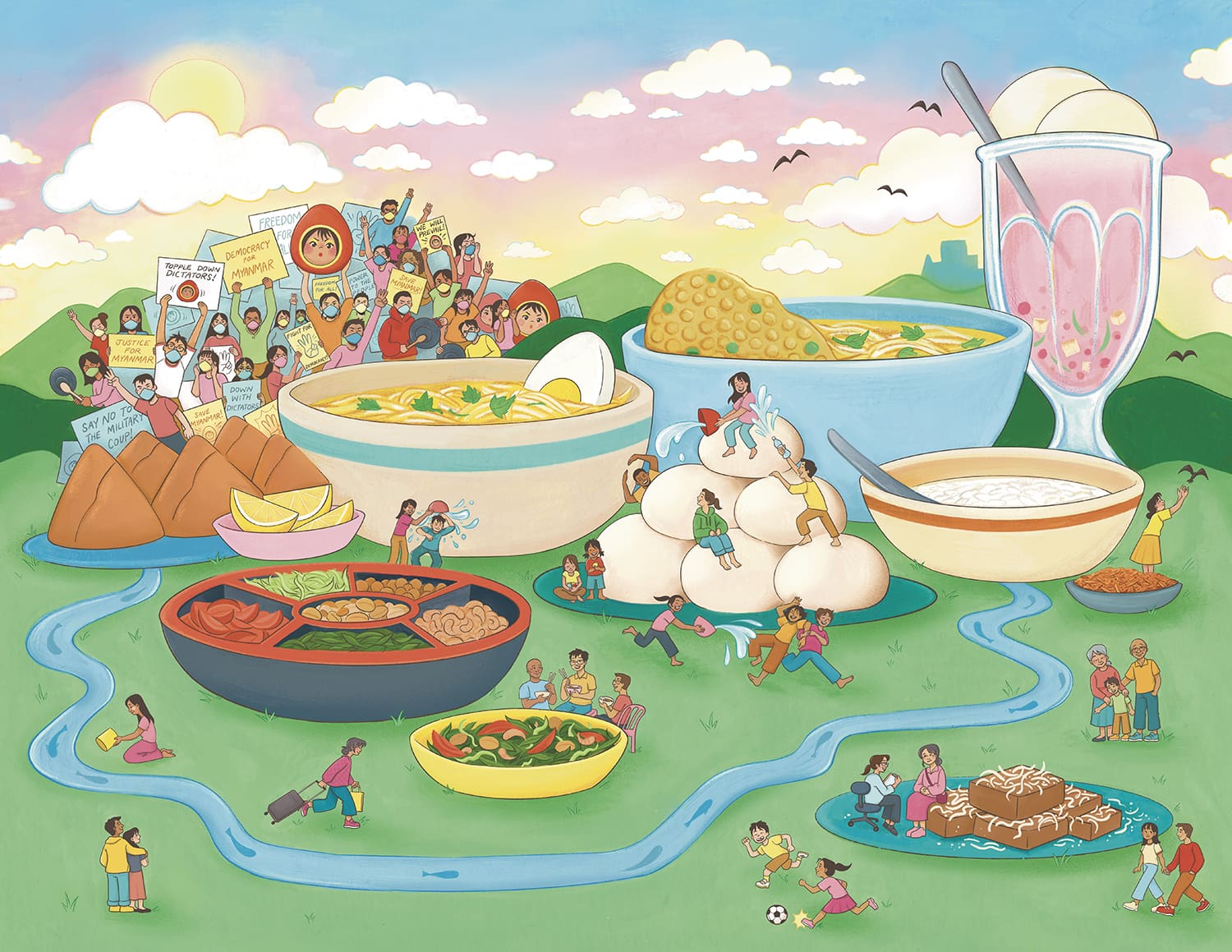
Koot
After fleeing violence in Myanmar and spending years in a camp, Koot resettled in Oakland carrying fear, loss, and unshakable hope. Nearly 20 years later, she has built a new life rooted in family and community, keeping vibrant Burmese traditions and celebrations alive far from home.
ROOTS & BEGINNINGS
Interviewer: Where in Myanmar did you grow up?
Koot: I grew up in the middle of the city. Shwe Pyi Thar is what it’s called. Yangon, Shwe Pyi Thar Township.
Koot: I was originally living in Kamayut, but that area burned down so they moved me to another city. I ended up in Shwe Pyi Thar when they moved me. From Shwe Pyi Thar I got moved to the camp.
Interviewer: How old were you when the protests began? When you left, how old were you?
Koot: When I left I was 35 years old, I had 4 kids by then. I left 4 kids when I was inside Mae Sot (camp), I was inside for 5 years. Since I stayed for 5 years I took pictures there. The kids couldn’t contact me. At last I had to pay someone to sneak the kids into Mae Sot. They did a lot of farm work, like farming corn. After taking the pictures, others said they were coming to call us up. When they came to call up, I could only bring two children. The fourth one was missing.
Koot: It was difficult. I was originally going to put 4 kids on the list but I couldn’t find my two sons. They were already grown up and missing and we had no idea where they ran off to. But I was able to bring a son and a daughter here. I had to stay there for 5 years. When I arrived here it was very difficult. We had no money and the two kids were thirsty but we had no water to
drink. So we had to drink water from the toilet since we had no money. It was very difficult but eventually I even forgot my two kids and we were happy.
Translator:
The time that I flee from my place, at that time, I was 35. I’ve already got 4 kids, 4 children. Because I involve in the anti kind of government and I also that the military intelligence, that’s why I have to flee. When I flee there I went to the camp, when I arrive there, I put my name but my kids are behind, we enlist there and I have to
stay in the camp for 5 years. We are not allowed to go out, we stayed in [the camp], the Thai government also said that. So after 5 years, United Nations, they came and took names and they are sent them third world countries. I try to organize my children but they cannot come. Only two. They cannot come into the capital, their names are not there. They live in the Mae Sot at the border town, the small town, they struggle a lot, they have to do hard work. When the list came out, I tried my best so we can go, but only two of my children can go with me.
Interviewer: When you were born was the government still peaceful or was it like this military regime? Were there any difficulties? How was it like living under that system? When you were born was it the peaceful government or military regime?
Koot: When I was born it wasn’t like this military regime. When I was young I was with my father who was a rebel. He died when I was about 2-3 months old, so my mother fled to Yangon. She left my two younger sisters with my grandparents in Thaton. When I grew up I had a difficult life in Yangon, and eventually I got married. My parents were gone by then, and I had to work while I was married. Work was difficult and it wasn’t a comfortable life. Then the 8888 revolution occurred.
HOME CULTURE & FOOD
Interviewer: Can you describe more about the water festival? How do you celebrate here versus back home or back in Myanmar?
Koot: Thingyan was very fun in Myanmar. It’s a 3 day festival where people splash water at each other. We go to monasteries as well during new year day and make Mont Lone Yay Paw and things like that. Thingyan here is different. I don’t want to splash water here since its colder. Others would splash water but since it’s cold I would stay at a distance. People would dance and have markets. It’s not as good, as happy, as it is in Myanmar.
Koot: We listen to the monk’s sermons as well.
Interviewer: Can you describe the type of food?
Koot: There’s many different kinds of food such as Mohinga, Ohn No Khauk Swe, Mont Kwe Thae, Mont Lat Saung, and Halawar. There’s a wide variety such as Pae Kyaw, Pae Kat Kyaw, Samosa, Bayar Kyaw. There’s a lot, I can’t recall all of it. There’s also Yay Khae Thote (Shaved Ice), Faluda, Shwe Yin Aye, there’s a lot.
Interviewer: So for the water festival, what are the foods or traditions? Can you explain what Thingyan is like for people who don’t know what Thingyan is?
Koot: Most of the time we make Thingyan Rice and Mont Lone Yay Paw and that’s it.
Koot: Yes, Halawar and Shwe Kyi. But most of the time we would make Mont Lone Yay Paw, Mont Latt Saung, and Thingyan Rice. There’s a time and place for everything. During Thingyan we would make Thingyan food, during Kayin new year we would make Kayin food, and Christian food during their celebrations.
Koot: For Thingyan Rice we have to boil the rice. There would be boiled rice, dried fish, cut up mango pieces, and fried chilli. We would eat with that. Oh Thingyan Rice. We would boil the rice, wash the rice, and drain the water. Then we would boil the dried fish and make it into smaller pieces. Put that into the rice with some oil and chillies. There’s small pieces of non ripe mangoes as well. We would wash it first and then put it in a filter and put dried fish pieces. We would fry the dried fish pieces with the non ripe mango pieces. Then you fry the dried chilli and put it away. The whole chilli itself. Afterwards you have to make the rice broth. You have to make the rice fragrant by putting in things that would give it a fragrance.
HEALTH & HAPPINESS
Interviewer: What does having good health mean to you?
Koot: Oh, your body has to be in good health. Regardless, if you have money or not, if your mental state is happy then for me that means I’m in good health. But if your body is not healthy then you’re not happy. But if you’re happy in your mind then that means you’re healthy.
Koot: Even if you have a lot of money, if your mental state is not healthy then you are not in good health. Even if you don’t have any diseases or if your body is in good health, if your mind is not, then you are are not healthy.
Interviewer: Do you feel like you’ve been able to achieve health in America?
Koot: Yeah, I’m happy in America. Everything is going well for me. But sometimes when I think about my household problems I would worry and I would start aching here and there. Then it’s not good anymore. But if my mind is in a good state, there’s no aches or anything at all.
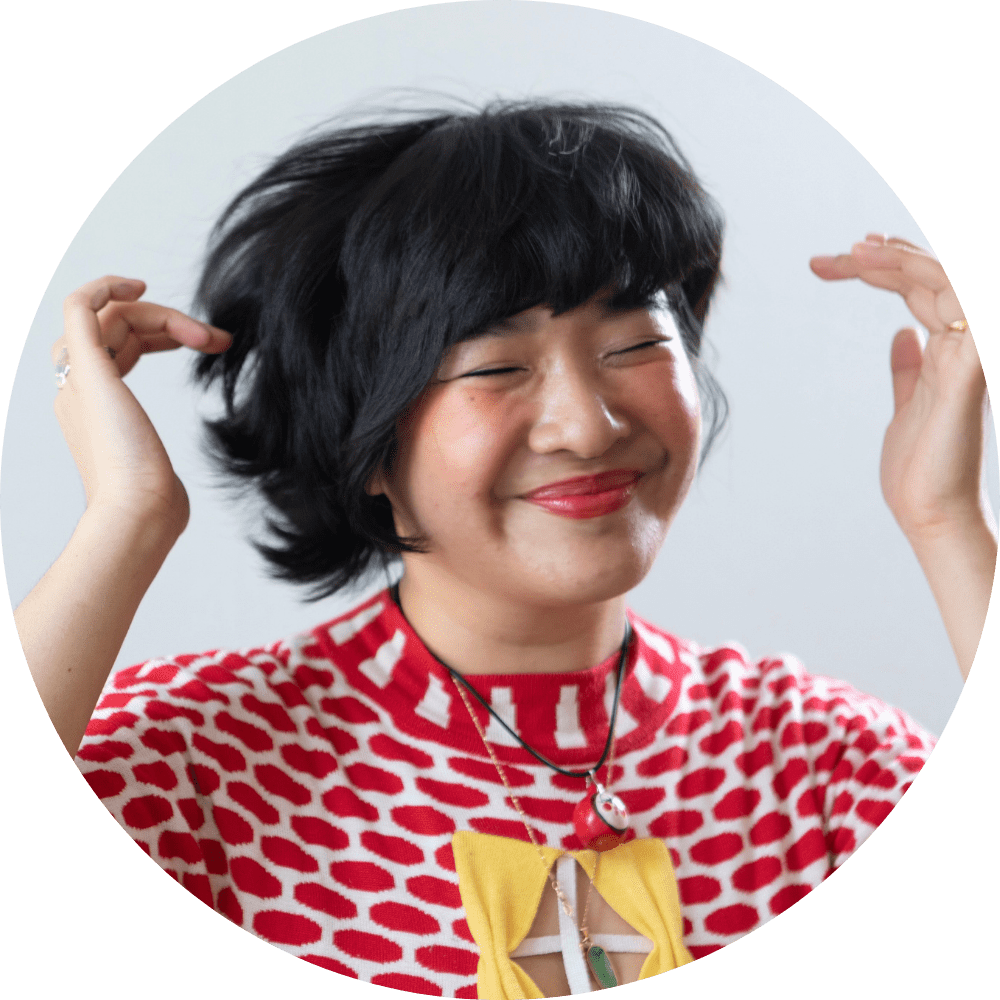
Valerie Win Liu
Valerie Win Liu is Burmese-Chinese-American Artist, Illustrator, and Designer from the Bay Area.

